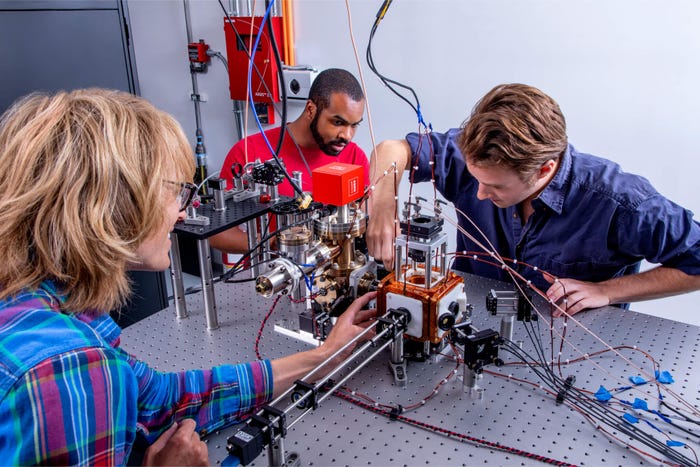
Connects decision-makers and solutions creators to what's next in quantum computing
Quantum Tech Promises to Support UN Sustainability GoalsQuantum Tech Promises to Support UN Sustainability Goals
WEF, Accenture report finds quantum-powered sensing, simulation, AI, machine learning, optimization and risk management hold the greatest potential

Quantum technologies could turbocharge the race to meet the United Nation’s 17 sustainable development goals (SDGs), a new report by the World Economic Forum (WEF) and Accenture has found.
The report, “Quantum for Society: Meeting the Ambition of the SDGs,” highlights areas where quantum technologies could soon help find solutions for challenges that fall under the SDGs, including disease, education and climate change.
The report found that applications in the quantum sensing space could soon unlock value leading to practical use in health and well-being (SDG3) and affordable and clean energy (SDG7). For example, quantum sensing and simulation might help to alleviate drinking water disinfection problems for millions of people in Sub-Saharan Africa.
Other opportunities relate to earth observation to support disaster preparedness, solar cell design, climate modeling and weather forecasting. These all have a high chance of driving real and measurable impact to boost several SDGs simultaneously.
This is important as humanity has made only minimal progress on more than 50% of the SDG targets, according to the United Nations’ 2023 Sustainable Development Goals Report.
Other key opportunities from quantum technologies lie in outperforming classical computers for molecular simulation and discovery in materials science and biology, optimization and risk management in complex systems, and AI and machine learning.
For example, quantum technologies could accelerate and improve work using AI and large quantitative models (LQMs) that is already underway. One example is SandboxAQ’s collaboration with the UCSF Institute of Neurodegenerative Diseases to apply its LQMs to advance Alzheimer’s research. Scientists achieved an unprecedented breakthrough in only a few months, according to the report.
“Quantum might well be the disruptive technology we were waiting for to turbocharge the race to the SDGs,” said lead authors Laura Converso, Accenture thought leadership principal director and Arunima Sarkarin, WEF quantum technology lead.
“Identifying quantum solutions that might achieve readiness in the next six years and have the potential to scale fast, affecting billions of lives, will be critical to impact the societal agenda in a concrete and tangible way.”
Assessing the short-term potential of quantum computing, however, remains difficult, they added, as there is no leading approach and different quantum modalities – superconducting, neutral atom, trapped ion, photonics – coexist, creating a ‘mixed bag’ of advantages and disadvantages.
However, to advance quantum technologies to progress the SDGs ahead of the UN-set 2030 goal to achieve notable progress, the nascent ecosystem should work together to identify, prioritize and research quantum technologies.
About the Author
You May Also Like






